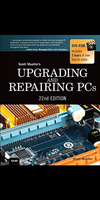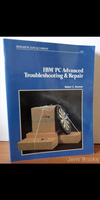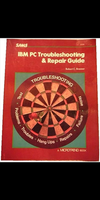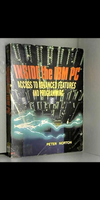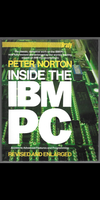First post, by Kitty Trouble
I’ve never been good with hardware: I’ve grown up learning programming and the like, but when it comes to solving hardware problems, I’m mostly clueless, besides a very general overview about what everything does I.e. motherboard basically controls everything, ram provides temporary memory, hard drive provides persistent memory, etc. I also don’t have access to a never ending supply of computer parts. I have my windows 11 laptop, an old pentium 133 computer which I’ve been trying to get working for games, and my aunt also gave me a windows 7 computer that someone told me might be good for an Xp machine. It doesn’t help that I’m morbidly obese and working around small parts and worrying about accidentally sending static into them or breaking something.
Lately when trying to install stuff on my old windows 98 computer I have no idea why stuff isn’t working, how to fix it, etc., which you can find posts of mine throughout the forums.
How does one “learn hardware” as an adult? I got banned from someone’s discord because they linked me to a document explaining DOS memory and I couldn’t figure out how that correlated to my games’ low memory errors - I have trouble learning until I have something explained to me, then I can usually retain it, but without following a guide or something it’s really hard for me to just jump into something.
So as an adult how can i learn these things? The above mentioned person on discord just kept repeating “you need to use pcem” but using pcem doesn’t help me with all these hardware issues I’m having… floppy not working, pci usb not working, even knowing that a motherboard might have USB pins, how to find out what my motherboard is, for example. Is it just something I’ll learn over time by solving problems on my own?
I really would like to be more comfortable around hardware but I get very overwhelmed, so how should I start?
